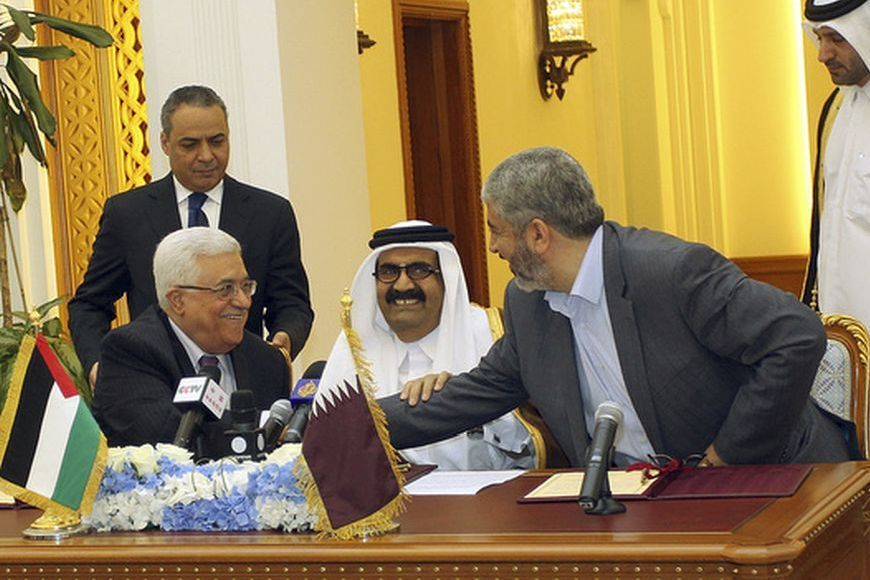Ramallah- The decision of the Palestinian Supreme Court to suspend elections in the West Bank and Gaza, which was set on the 8th of October hasn’t disappointed many people who didn’t believe that it would happen. Those people realize that the depth of the division will obstruct the process of democracy and have widely expressed their views through different media outlets.
Although these elections are for local councils, which means that they serve municipalities and public services, they will also be a trial to test the popularity of the two biggest factions, Fatah and Hamas, in their first confrontation since 2006. For many, these elections were considered a chance to put an end to the division and to make a first step that pave the road for presidential and parliamentary elections later.
Palestinian President Mahmoud Abbas has concluded the whole election matter before the court’s decision, saying that it’s true that these elections are municipal, but they have a political aspect, therefore people have to practice their right and choose their representatives in a national position for a unified Palestine.
However, few days of pressures by Arabic external parties led to the suspension of the anticipated operation; lawyers also have opposed elections because they will not be held in Jerusalem and because their judiciary reference will be in Gaza under the supervision of Hamas.
*Exchanging accusations
After the court’s decision, Hamas loudly expressed its rejection, as its spokesman Sami Abu Zuhri said the decision was politicized and aimed at saving Fatah from the failure of a number of its electoral lists in some regions.
However, Fatah has saw that Hamas was the one responsible for the suspension decision, saying that Hamas’s courts in Gaza rushed to omit some of Fatah’s electoral lists in the strip before the Supreme Court’s decision has came into light. Fatah Spokesman Fayez Abu Aita pointed out that the procedures taken in Hamas’s courts aimed at exempting the movement from the democratic test and considered the Supreme Court’s decision as the wiser solution to face Hamas’s arrogance.
No one can know when the Palestinian parties may agree on organizing new elections, especially that the suspension of these elections, which was expected to include Hamas for the first time since its control of Gaza Strip in 2007, has reflected complications of the scene locally and regionally.
Since 2007, Palestine hasn’t witnessed any elections because of the division among different parties; three attempts of local elections failed before 2012, when Fatah organized a unilateral election in the West Bank without the participation of Hamas and was preceded by reconciliation agreement between both parties.
* Undisclosed reasons
Regardless of the Supreme Court’s decision, many undisclosed reasons have stood behind this suspension. Political expert Hani al-Masri sees that this decision has been bad but expected, particularly after the pressures imposed by the Arabic quartet. He added that Hamas and Fatah will never allow the other party to win in their control regions, and that the organization of elections amid the lack of national consensus and under occupation in a step with unknown results.
* Pressures for Dahlan
The pressures of Arabic parties insist on Mahmud Dahlan’s return to Fatah, and have seen that the movement should be strong and ready to guarantee its success in the local elections, and in the presidential and legislative ones later. However, Abbas has refused Dahlan’s return and at the same time avoided the conflict with the Arabic brothers.
Al-Marsad, observer of political and social policies revealed that more than 860 lists participated for these elections compared with 670 in 2012. It added that the participation of many independent lists makes it difficult to determine the winning party. It is worth mentioning that families also played a remarkable role and worked on composing their own lists in many regions.
In spite of the participation of more than 860 electoral lists, the leadership of these lists was dedicated for men by 99.1%. Many voices have loudly criticized the marginalization of women and considered that the seats given for females were allocated based on the quota system because of the failure of women empowerment as only two women were participating amid 70% of the lists.
